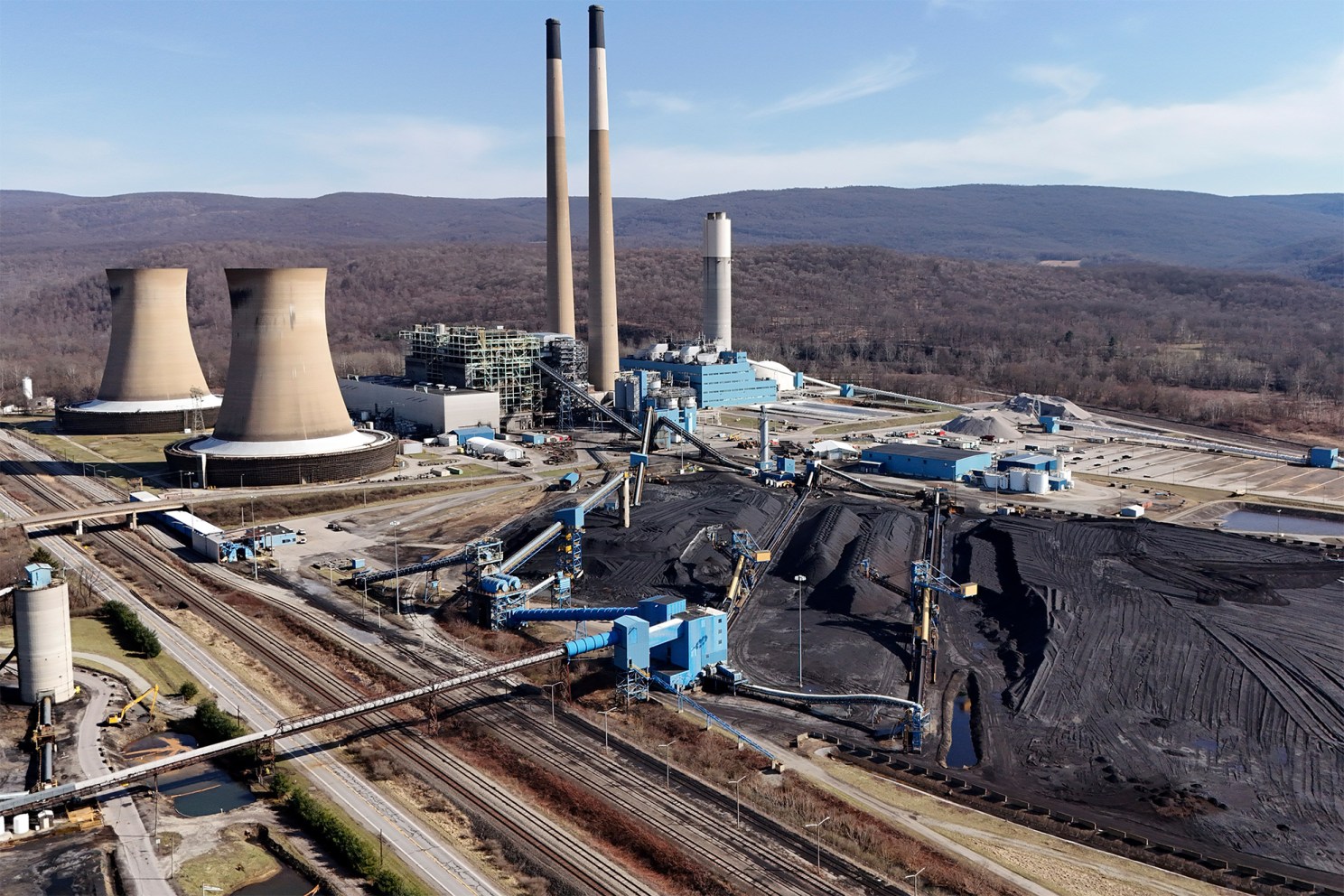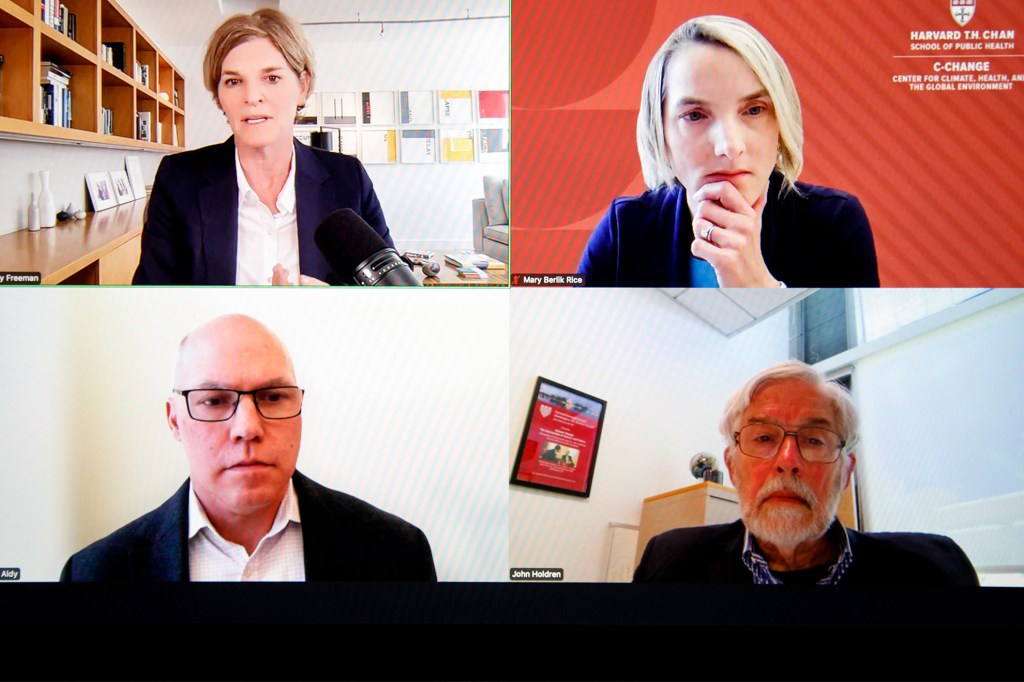Experts see a ‘low information’ reversal of U.S. climate leadership

The Conemaugh Generating Station in New Florence, Pennsylvania, was slated to close in 2028. In April, President Trump signed executive orders aimed at bolstering coal mining and coal-fired power plants.
Gene J. Puskar/AP Photo
Salata panelists warn of lasting damage from executive orders and cuts to research funding
The Trump administration is attacking climate science on multiple fronts with little regard for federal law, say Harvard experts who worry that the damage will be hard to reverse even if the government eventually loses in court.
“This isn’t normal,” said Jody Freeman, the Archibald Cox Professor of Law and faculty director of Harvard Law School’s Environmental and Energy Law Program. “No president that I know of in contemporary history has ever issued executive orders that are so reckless in disregard of legal limits. They’re willing to roll the dice or intentionally violate legal requirements and then say, ‘Chase us around and sue us to stop us.’”
In April, the president signed at least two executive orders that threaten climate progress, Freeman said. One instructs the Department of Justice to investigate state climate policies that conflict with the federal government; the other calls for federal agencies to prop up the nation’s fading coal industry.
Freeman spoke at an online briefing sponsored by the Salata Institute for Climate and Sustainability. Other speakers were former Obama science adviser and Teresa and John Heinz Research Professor of Environmental Policy John Holdren; Teresa and John Heinz Professor of the Practice of Environmental Policy Joseph Aldy; and Mary Rice, the Mark and Catherine Winkler Associate Professor of Environmental Respiratory Health.
“All of this runs the risk of climate change growing faster than it otherwise would have, possibly passing catastrophic tipping points.”
John Holdren

Panelists Jody Freeman (clockwise from upper left), Mary Rice, and John Holdren with moderator Joseph Aldy.
Photo by Grace DuVal
By turning its back on climate change, the U.S. loses more than the trust of its global partners, said Holdren. It loses time in a race with very little margin for error.
“Time lost from advancing solutions is gone forever,” he said. “And all of this runs the risk of climate change growing faster than it otherwise would have, possibly passing catastrophic tipping points.”
Many of the administration’s actions seem designed to undercut our ability to understand, never mind fight, the climate crisis, Holdren said. He cited changes that have weakened the National Oceanic and Atmospheric Administration, NASA, and the National Science Foundation, along with cuts to work being carried out by nongovernmental organizations and universities. The U.S. and China have been the global leaders of efforts to better address climate change, he said. By slashing climate science, the administration is ceding leadership on an issue of global importance matched only by nuclear arms and pandemic threats, he argued.
Aldy charged that the new administration is seeking a “low information” government, with multiple actions aimed at shrinking government datasets, on climate and other issues. He is bracing for widespread negative effects touching everything from student science projects, to projections for hurricanes, extreme heat, and wildfires, to the ability of insurance companies to understand and incorporate extreme weather risks in setting rates.
“This government is actually making concerted efforts to reduce the amount of data available and reduce the generation of new data and evidence by both government scientists as well as scientists who are supported through government funding,” he said.
Aldy also lamented workforce reductions at federal agencies, including civil servants with scientific and policy expertise who will be hard to replace.
“Implementing policy is hard work,” Aldy said. “It’s critical to have a dedicated team of public servants who have the expertise and are trained in the sciences and law and public policy and public health and engineering and more. You need them to be able to understand what Congress passes, to understand what the White House may say we want to do, and then to be able to work effectively on implementation so that you can actually advance your goals.”
Rice is particularly concerned about cuts at the Environmental Protection Agency, whose research office has been slated for major changes and whose research funding to university scientists has been slashed. Philanthropy can fill some of the holes, she said, but not at the same scale or with the same consistency. Much of the affected work has direct links to human health, she noted.
“In just the past few days, the EPA has canceled hundreds of research grants to universities, to scientists,” she said, adding: “When science is silenced, lives are lost.”





